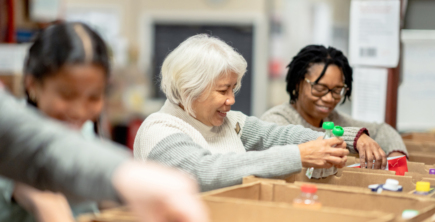
Corporate Partners
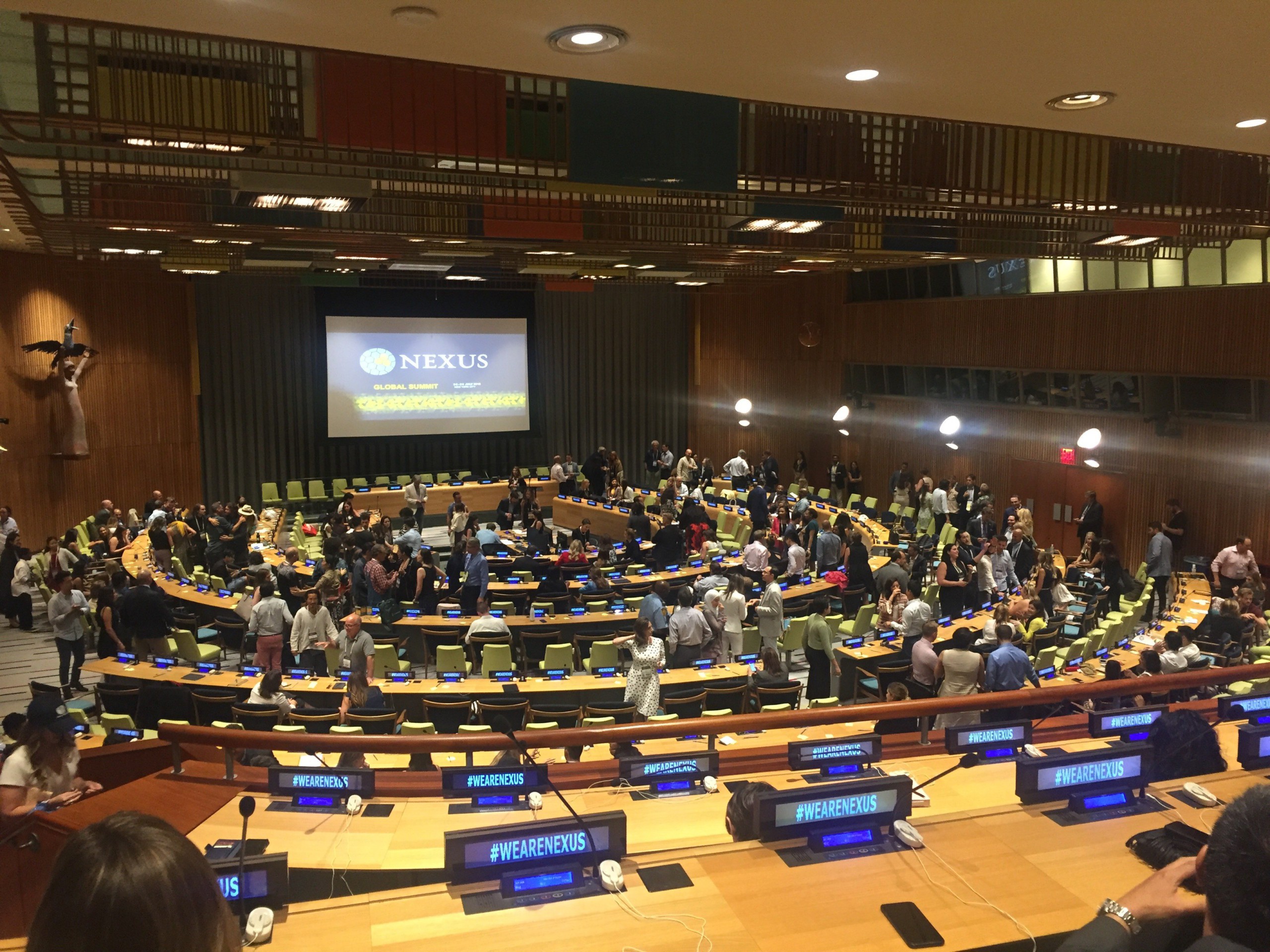
Nexus Global 2018 Summit opening plenary
“Nothing is impossible. Everything is possible – impossible just takes more time.” Last week, Johan Ernst reminded a room of 600 global leaders from over 60 countries that persistence and stepping outside your comfort zone are the keys to achieving your dreams.
We couldn’t agree more. At Tides we cross boundaries, embrace risk, and leverage every tool at our disposal to accelerate the pace of social change. Which is why we were excited to attend the 2018 Nexus Global Summit in New York City. Nexus is a global effort designed to bridge communities of young investors, social entrepreneurs, philanthropists, and allies to catalyze new leadership and advance needed political, indigenous, environmental, and equal justice solutions.
This summit connected young people from diverse backgrounds and linked communities that would have otherwise never met. This approach really resonates with me, as the world’s complex social problems simply can’t be solved by a single funder or organization. The challenges we are facing on a global scale seem impossible to solve and demand a coordinated network of partnerships rooted in equity, trust, and relationship building to achieve systems-wide change.
Over the course of three days, I had the opportunity to hear from experts on the ground who are leveraging collaborative frameworks to activate partners around common issues. I learned about the power of scale from Tiffany & Co., who are working with the Leonardo DiCaprio Foundation and The Wildlife Conservation Network to launch the Elephant Crisis Fund that unites 63 organizations in 32 countries. This powerful leverage allows them to coordinate the efforts of 175 different projects around the common goal of ending the ivory poaching crisis. I also had the chance to learn about the Four Freedoms Fund, a national donor collaborative working toward full integration of immigrants as active participants in our democracy.
In addition to meeting dozens of talented leaders in the social sector, I had the honor of facilitating a conversation on maximizing impact through collaborative initiatives featuring three inspiring leaders, Amol Mehra of The Freedom Fund, Rena Greifinger of Maverick Next, and Dayo Okewale of Who’s Got Game?
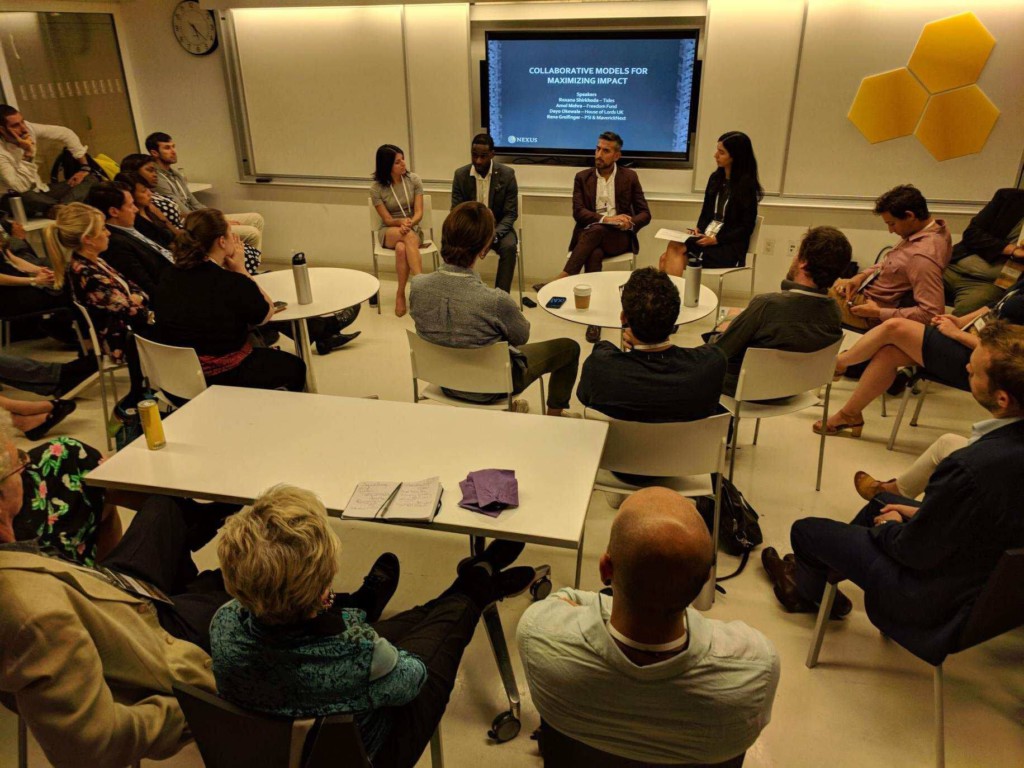
Session on maximizing impact through collaborative initiatives, led by Director of Special Initiatives, Roxana Shirkhoda.
True to form, we started the session by hearing from folks in the room who themselves have a wealth of experience leading challenging collaborative efforts. Our guests asked poignant questions including:
As a group we had an honest conversation on this approach to social change, acknowledging both the benefits and challenges of these structures, and we identified outcomes that result from this approach.
Complex systems are often necessary to tackle deeply complex issues – and complex systems inherently come with hurdles. Our panelists shared some of their challenges with the room:
The Freedom Fund: Maintaining focus on community throughout the organizational model, including attention on frontline communities via hotspots, strategic initiatives, and movement building – while ensuring a community of donors is supported and enhanced. The Freedom Fund’s dual collaborative approach of pooled donor funds at the top and coalitions of frontline organizations on the ground can be seen in the figure below.
Maverick Next: Setting up a new and highly engaging donor circle prioritizing the learning journey of nextgen leaders while driving direct services programming.
Who’s Got Game: Doing the seemingly impossible – bringing the Sierra Leone government together with KPMG of the private sector and a national basketball team to tackle the estimated 800k unemployed youth age 15-35 across the country through training and workforce skills development.
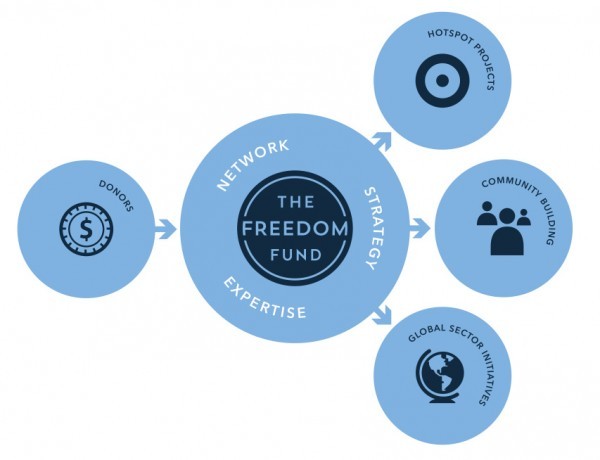
With hard work comes great reward. Our trio of experts talked through the benefits of bringing together collaboratives and the outcomes they have seen to date. Dayo Okewale noted that his cross-sector initiative has brought together unlikely allies, and with clearly outlined roles and responsibilities from the start the group has been successful in measuring gains in youth employment. Amol Mehra shared that the organization’s approach and work with frontline communities has increased lives liberated from slavery, and empowered communities with a stronger understanding of their rights. And while Maverick Next is a new program, they are setting out to dismantle power dynamics among a group of critical allies with a focus on increasing uptake in contraceptive use.
It was incredible to get to know these three organizations and their powerful work impacting lives through collaborative efforts. I thank Amol, Rena and Dayo and hope to continue elevating leaders in the field who dare change through this approach – especially given Tides was built on the very idea that collaboration accelerates impact.
Whether you’re an individual donor wanting to grow your impact by joining forces with other philanthropists in a donor circle, an institutional funder looking for cross-sector partners to help bring your bold vision to life, or a changemaker looking to coordinate action across an issue area – we believe nothing is impossible.

Corporate Partners
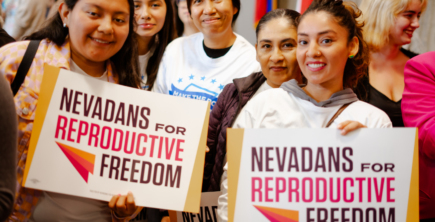
Healthy Democracy Fund
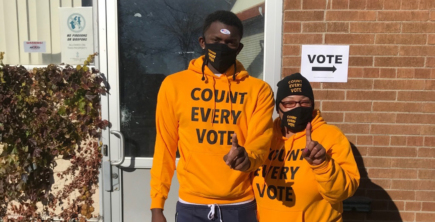

Read the stories and hear the voices of social change leaders fighting for justice.